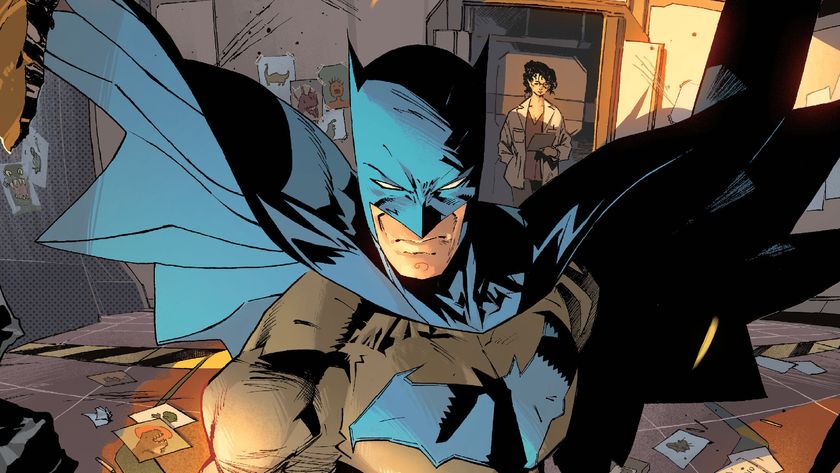7 ways next-gen can rebuild horror gaming

Some important points
The horror genre, it's entire fair to say, has been in the wilderness for a few years. And that hasn't made me happy. Not one little bit. You see I take horror very seriously. Have done since I first became obsessed with vampires at the age of five. There's not a single important horror film of the '70s or '80s that I haven't watched on a bedroom portable with the sound turned down to fool my parents, and Cabin in the Woods evokes the kind of joyful tears in me that most people get from Forest Gump. So obviously, the evolution of video game horror is something that I think about. A lot.
And the last console generation, on the whole, was rubbish. The grueling demands of survival horror butted heads with the modern trend for accessibility. Slow-paced dread had run-in after run-in with the demands of the action-loving, instant-gratification posse, and came off worse every time. But things are changing. A whole bunch of stuff is coming together to paint a brighter future for the most betrayed of video game genres. Elements of design, industry, distribution, and gaming culture are shifting to open up some incredible opportunities over the course of next-gen. Click on, and I'll explain just how this new phase of console gaming could and should fix things.
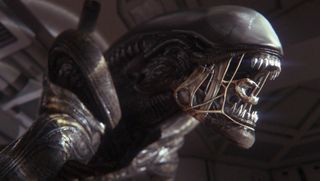
Improved AI can make for far scarier enemies
Think about how the best horror films work, and then compare that to most horror games. Good horror films arent about huge swarms of tooth-gnashing monsters charging towards the protagonists. Theyre usually about a single, unique threat, with its own, often unknown agenda and its own, often-unknowable thought process and behaviours. Its the inherent otherness of a horror film antagonist that makes it disturbing. But horror game enemies all too often simply rely on high-damage, high-priority attacks and sheer numbers in order to be scary.
Worse, they tend to operate via predictable, canned behaviour-patterns that, far from making them threatening, actually become yet another tool in the players arsenal. But there is hope. Alien: Isolation is doing staggering things to create a living, breathing, entirely unpredictable enemy, and to wonderfully powerful effect. Heres hoping that the final game is artistically and commercially successful enough to give other developers the bravery to take the plunge. I know that I say something like this at the start of every new generation--shortly before all of the extra new horsepower gets burned up on flash-bang spectacle and scripted events--but really, a return to AI-driven gaming is way, way overdue.
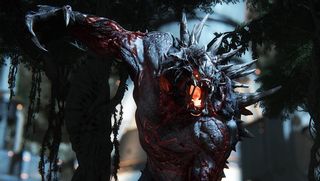
Online connectivity can make for deliciously malicious mix-ups
So weve established that predictable enemy behaviour is kryptonite to real horror. And that AI investment is the strongest way to dispel that problem. But what if you havent got the time or the budget to commit to that plan? Well in that case, you bring out the most dangerous monster of all. Man.
Trapped in a closed environment with a computer controlled monster? Scary. Trapped in a closed environment with a player-controlled monster, possessing all the predatory instincts, problem-solving abilities, misanthropic malice, and sense of self-preservation inherent to a human being? Good luck. 2Ks newly-announced Evolve is applying this approach to a giant monster hunt, but it could be a killer concept for a more horrific scenario. Indie horror game Damned is playing around with this idea in a multiplayer scenario, but you know what else would be great? The ability to jump into your friends solitary, single-player campaign, unannounced, and mess with the monsters. Or even the environment itself. With PS4 streaming connectivity allowing spy and jump in behaviour, there is no excuse for this idea not being picked up.
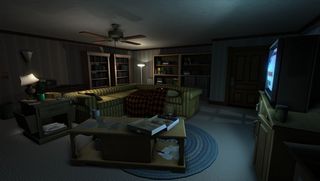
Next-gen fidelity can make less-obvious settings terrifying
Interesting thing about dark, spooky settings. Theyre not actually spooky. After decades of being trained to understand that scary things happen in decaying Gothic houses and abandoned labs, were all too aware of what to expect. Good horror is frequently about juxtaposition. Its about the encroachment of something unknowable and alien upon our day-to-day lives. Its about invasion, and the violation of normality. But by now, having scary things happen in standard-issue scary places is normality. Theres no discomfort. Theres no shock. If you walk into a spooky old mansion on a dark and stormy night, you know what youre getting into. In fact you asked for it. Youre not really being attacked by anything.
Video games need to understand that interplay between reality and horror. The fidelity of in-game world-building is already staggering. Weve hit the point where games can create real atmosphere, personality, and emotional feedback through environmental design, without ever veering away from reality. Gone Home has earned a plethora of creeped-out testimonials from players, despite containing not a single horrific element, simply because it perfectly captures the atmosphere of being alone at night. And in an entirely normal, modern home to boot. Lets use that more, and not just in empty, nocturnal houses. Lets use next-gen environments to immaculately establish physical and emotional normality, and then shatter it. Itll be far, far scarier, trust me.
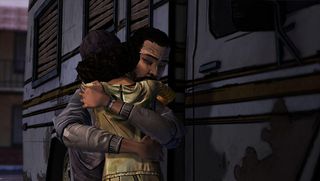
Evolved storytelling can make for affecting, narrative horror
On a slightly similar note, good horror is not--and should not be--focused on the tangible threat at large. To do so misses the real source of the horror: The human experience of it. Why are crap, throwaway slasher films crap and throwaway? Because the cast are disposable generi-teens who exist solely to be thrown into the meat-grinder. Why is Halloween an excellent slasher film? Because its about the isolation of a believably-written, well-acted character and her spiraling rejection by her community, as an increasingly horrific situation spins completely out of control. See also Dawn of the Dead It's not about gory death-by-zombies. Its about the slow-burning plight and internal tensions of well-established characters pinned down by an insurmountable external threat.
Games should get on this. Theyre (potentially) the most powerful narrative medium around, and theyve taken vast leaps forward in empathy-driven storytelling over the last few years. The Walking Dead. The Last of Us. Journey. Hotline Miami. Gone Home. Dark Souls. The interactive storytelling toolbox is ever-expanding, and it absolutely needs to be aimed at mature, affecting, character-focused horror over the next generation. Early tip: Keep an eye on The Vanishing of Ethan Carter. It could be a winner.

Developers can get more creative with their definition of horror
Gravity is one of the best horror films of 2013. It features no supernatural element, no deranged killer; no bad guy in any traditional sense. But despite--and because of--that, its horror through and through. It trades on isolation, random and indefensible attacks, and a spiraling loss of control, and forces a broken, completely unprepared protagonist to draw on every personal reserve she has in a desperate bid to survive. Its setting and scenario might be a far cry from haunted houses and government experiments gone awry, but in terms of the techniques and themes at play, it is every bit a horror film. The fact that its antagonist is the cold, relentlessly uncaring, completely unrelatable environment rather than any sort of sentient being, makes it all the scarier.
With any situation, real or otherwise, now able to be convincingly simulated in a video game, the next wave of horror games should start looking to less traditional scenarios for its scares. Its entirely possible to keep the essence of what makes horror work while branching out into entirely new pastures of presentation. Yes, a game that presents environmental danger as relentlessly as Gravity would find it hard to keep up the pace over the course of a full-length run, but fortunately theres a modern gaming solution to that too, which is coming right up.
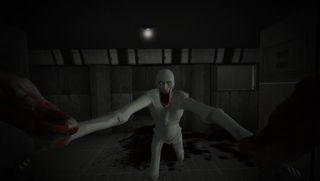
Digital distribution can revolutionise short-form, focused horror
One of the healthiest, most liberating moves that horror gaming could make would be to stop worrying about justifying triple-A, 10-hour experiences. Horror cinema--the good stuff, not the dull, over-slick, CGI Hollywood nonsense--has happily existed as a niche genre for years. Because thats exactly what it is, in its most comfortable, natural form. And now that digital distribution and the more open resulting marketplaces are becoming an increasingly important part of the console gaming landscape, as well as that of the PC, theres no reason that good horror gaming cant flourish in the same way.
If you try to make your horror film more palatable to the mainstream, you get guff like Sinister. If you try to do that with your horror game, you get Resident Evil 6. Instead, more puristic horror devs should be using digital sales to facilitate smaller, more focused works for a more appreciative audience. Look at the success of Amnesia. Look at the success of free indie games like Slender and SCP Containment Breach. Those sorts of games are only going to become more feasible as digital becomes a greater part of next-gen console gaming.

All of the above will mean we can finally drop the jump-scares
Seriously, guys. A jump-scare is not scary. A jump-scare is not clever. A jump-scare does not make your game horrifying. Its a cheap, crap, lazy trick used to artificially fool the player into thinking that theyre in a tense situation, in lieu of exploring any real, disturbing interplay with the antagonist, any genuinely affecting atmosphere, or any truly horrific themes. All of the above approaches are a better bet. They're what horror is really about.
Jump-scares (and to a degree, gore) are just surface garnish without any substance. The lettuce leaf on a plate missing a steak. To build a horror game primarily around them is to create a vacuous, empty experience, devoid of weight or substance. Thats not what horror should be aiming for in next-gen design. That's far, far too low an aspiration.
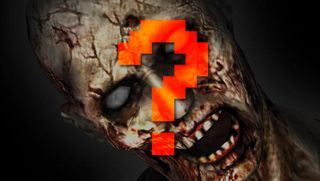
Time to rise again?
So that's my manifesto on how horror can (and must) return to its former glory next-gen. Hell, if even half of this happens, it could reach greater heights than ever before. But what do you reckon? Missing the creepier side of gaming? Or are you happy to see the back of it because you're basically a giant wuss? Let me know in the comments.
And while you're here, check out some of our related stuff. A good start might be The Top 7... Scariest games you've never played. As would Andy's editorial lamenting the question Where have all the survival horror games gone?.

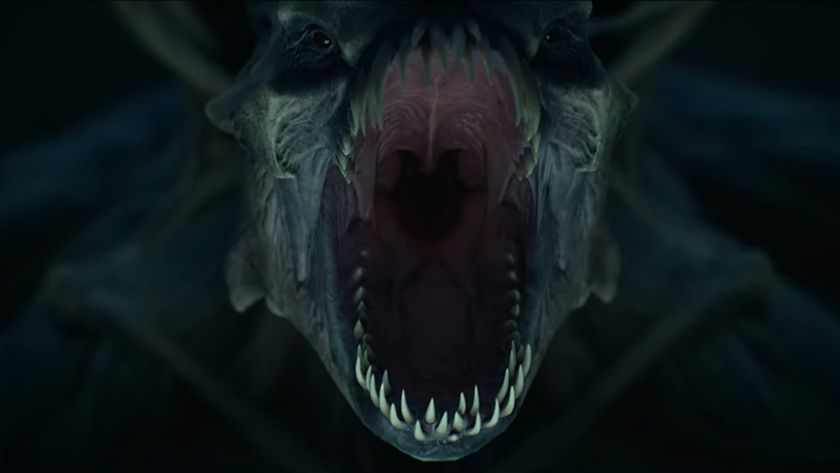
2 weeks after launch, Escape from Tarkov-style survival horror mashup Level Zero: Extraction ends development because it "underperformed" expectations
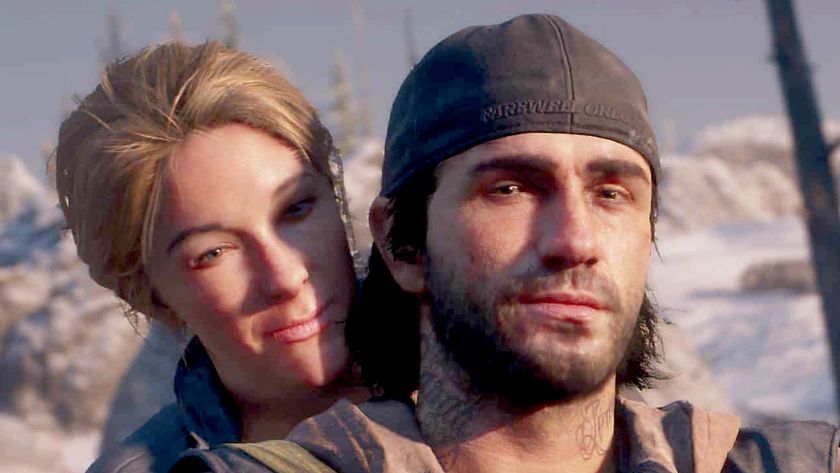
Sony may never give us Days Gone 2, but it did just announce Days Gone Remastered is coming to PS5 with three new modes: Horde, Permadeath, and Speedrun

2 weeks after launch, Escape from Tarkov-style survival horror mashup Level Zero: Extraction ends development because it "underperformed" expectations

Sony may never give us Days Gone 2, but it did just announce Days Gone Remastered is coming to PS5 with three new modes: Horde, Permadeath, and Speedrun
Most Popular






